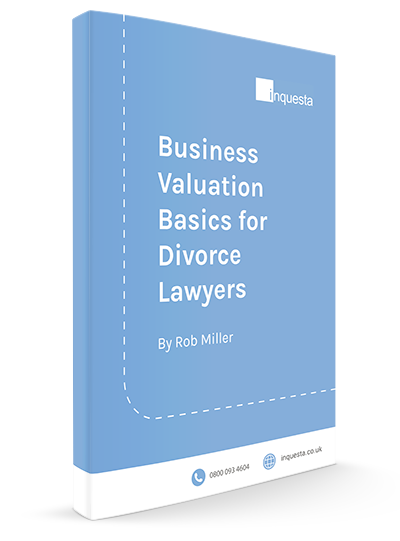What is Company Solvency?
Solvency defines a company’s ability to meet its long-term debts and financial obligations. It helps demonstrate the firm’s financial performance and is a key indicator of whether it can manage its operations for the foreseeable future. A firm will be declared solvent if its current assets are worth more than its liabilities.
A company’s assets are items that it owns, such as cash, machinery, property, and inventory. Meanwhile, liabilities are what the business owes. Examples of a firm’s liabilities include utility bills, rent, company taxes, and staff wages. It’s important that a business has not only enough assets to cover its outgoings, but also build a solid foundation in case something unexpected comes along, or to fund future expansion.
It’s important to note that solvency should not be confused with liquidity. While they are both indicators of a company’s financial standing, the two terms are extremely different. Solvency is focused on the long term, while liquidity is about the here and now. Liquidity refers to the firm’s ability to cover its short-term obligations, and how easily it can sell assets to raise cash.
Businesses can therefore technically be insolvent but have high liquidity. This occurs when it has enough cash or easily-disposable assets to cover its short-term outgoings, but the total amount of these assets is worth less than its long-term obligations. Conversely, it’s also possible for a firm to have extremely low liquidity but still be solvent. In this scenario, the company’s assets will more than cover how much it owes, but it is unable to quickly sell them or convert them into cash. Examples of this include unpaid invoices, property, and stock.
For a company to be successful, it must have a good balance between solvency and liquidity, so it’s not only financially robust for the future, but can also weather short-term interruptions should they arise. A firm’s financial position can change rapidly, making it essential to carry out regular reviews to ensure that everything is running smoothly.
Why is Solvency Important?
As a long-term measure of financial stability, company solvency offers an important insight into the health of a business. Should a firm become insolvent, urgent action will be required to turn around its position, otherwise it may need to close down via the process of liquidation.
It’s important that company directors have a clear understanding of how solvent their business is, not only from a stability standpoint, but also for legal reasons. This is because trading while insolvent is an offence and carries harsh penalties — ranging from fines to being disqualified as a director.
Regular company solvency checks can help identify a problem and give business owners as much time as possible to rectify their situation and stay clear of trouble.
Ways to Improve Solvency in a Business
There are several ways in which company solvency can be improved, including:
- Reviewing expenses to see if cuts can be made
- Offloading unnecessary assets
- Avoid taking on new lines of debt
- Implement measures to increase sales
- Reorganise or restructure your company’s operations
- Find ways to increase profitability
- Increase owner equity by putting more cash into the business
- Issue new shares (for public trading companies)
Not all of these potential solutions may be suitable for your business. This is why it’s a good idea to seek specialist guidance so a tailor-made solution can be found.
Download Your Free Guide to Business Valuation for Divorce Lawyers
Ensure that all of the prized assets in your divorce case, including a business, are valued properly and appropriately.
The process of valuing a company is likely to be one of the most complicated aspects of any divorce proceeding. Our FREE downloadable booklet is designed to support you. Download today and find out more

How to Determine a Company’s Solvency
There are several ways to perform a company solvency check, known as solvency ratios. These include the debt-to-equity ratio and the interest coverage ratio. Each of these analyses the ability of a business to satisfy its debts and build for future stability. For some, a higher ratio will be preferred, while others require a low ratio.
Here are the four main solvency ratios in more detail:
How Inquesta Can Help with a Company Solvency Test
As a licensed insolvency practitioner and business recovery specialist, Inquesta provides an all-encompassing service that is difficult to match. Our team can carry out an independent company solvency check and provide you with an in-depth report about your financial situation.
This report can be particularly useful if you are deemed to be solvent, but later go into an insolvent liquidation, as it can be used to defend your business against claims of wrongful trading. If you are deemed to be trading while insolvent, you could become liable for your company’s debts, so any supporting evidence will prove crucial.
Because we tailor our service to suit our clients, we will also recommend potential solutions to improve your financial position. The sooner you get in touch, the more options will be available to you, so it’s important to reach out at your earliest possible opportunity.
Should your company be unable to continue trading, we can also take care of the liquidation process from start to finish. We have worked with firms from all areas of industry, so we’re perfectly placed to assist. Get in touch with our team today to find out more about how we can help.
Get In Touch
Our Specialist Team
Unsure about your firm’s financial position? Our team can offer an independent company solvency check and offer specialist guidance throughout.

Steven Wiseglass
Director of Insolvency
A co-founder of Inquesta, Steven is a licensed Insolvency Practitioner with over a decade of experience in the field. He is a member of the Insolvency Practitioners Association, Association of Business Recovery Professionals (R3), and his insolvency licence is issued by the Insolvency Practitioners Association. In addition, he sits on the R3 committees of the North West Regional Committee.
Steven specialises in advising directors of small to medium-sized businesses, and has a wealth of expertise in providing the most appropriate advice whatever the firm’s circumstances may be. He has also been instrumental in helping company directors save their business and rebuild them into successful enterprises.
FAQs
Latest Articles
What are the Different Types of Costs in Business?
If you’re asking yourself, ‘what are the different types of costs in business?”, you’re already taking an important first step towards better financial management. Every business is faced with a range of expenses — from [...]
4 Advantages of a Cash Flow Statement
In business, it always helps to keep up to date on the ins and outs of your company. Whether this is staying aware of all inventory that is shipped out, being aware of any notable [...]
How to Identify Cash Flow Problems
You can have an excellent USP, a great product, a dedicated customer-base, and a busy business, but if you aren’t able to maintain a good cash flow, you are straddling a fine line between [...]




